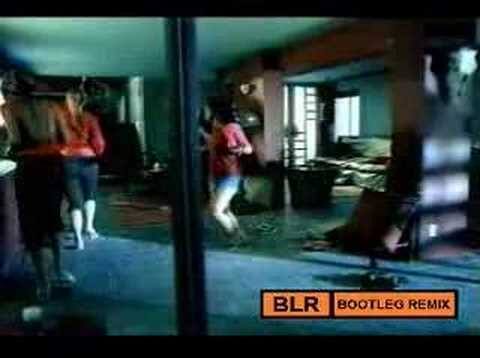What ever happened to the mashup artist?

“A Stroke Of Genie-us” was built out of CD-Rs: 30 seconds of Albert Hammond Jr.’s guitar, stamped on the end with that indelible, coltish riff sliding down Fabrizio Moretti’s drums, under an a cappella take of Christina Aguilera’s “Genie In A Bottle” that producer Roy Kerr was thrilled to exhume on the prehistoric internet. As a career DJ, Kerr was used to staying up into the wee hours chasing the tail of an enticing remix, but this was different. You weren’t supposed to sculpt dance music out of pop star outtakes and lo-fi EPs of garage rock. So why was it sounding so good?
“I had a few beers and thought, ‘You know what, I think this might work,’” says Kerr today. “The first cut was about five minutes, and I was like, ‘It does kinda work?’ [A friend] said, ‘Make it three minutes, and that will be amazing.’ I did, and it took on an importance way beyond my imagination.”
Indeed, there is a mischievous spirit to “A Stroke Of Genie-us”—part joke, part backdoor left hook—that leaves you blissed-out and near-catatonic the first time you hear it. Its genesis was, in part, a reaction to the tiresome pedantry of the late-’90s dance scene, home to more subgenres than DJs. “I was bored of it,” Kerr remembers. “I wanted to ignite something.” So he pressed his composition on single-sided, limited-to-500 vinyl, under the moniker Freelance Hellraiser.
Mashups had existed before this. Kerr himself was a disciple of London nightlife, and he can recall vanguards like Fatboy Slim alchemizing Madonna, Janet Jackson, or Whitney Houston with any number of carnal, big beat grooves on the dance floor every weekend. But it took “A Stroke Of Genie-us” for mashups to finally cross the Rubicon of taste, at least as far as the music press was concerned. Sasha Frere-Jones, then the pop critic at The New Yorker, wrote a piece in 2005 heralding Kerr as the harbinger of a new, radical movement, with an uncanny ability to “[broker] musical detente” between something as saucy as Aguilera and something as churlish as The Strokes. Pitchfork, in its ambitious attempt to celebrate and encapsulate the decade, named the song the 78th best track released between the years of 2000 and 2009—just ahead of Jay-Z’s “Izzo (H.O.V.A.),” just behind Three Six Mafia’s “Stay Fly.” The Guardian went a step further and codified “A Stroke Of Genie-us” as the song of the decade.
Now, just eight years after The Guardian’s claim, it appears we’re living in a post-mashup world. There are obviously still plenty of viral horrors being released every day on the internet: You don’t have to go far to witness a poorly sequenced Cardi B instrumental smeared on top of a vintage Dr. Dre beat, or a chipmunked DMX on “Call Me Maybe,” or the unholy marriage of Train’s “Hey Soul Sister” to The Notorious B.I.G.’s “Party And Bullshit.” But it’s been a very long time since the mashup—or the “mashup artist”—has commanded that sort of attention or respect. Those who do catch fire are meme-y and sardonic, passed around in anonymous YouTube clips, most often existing as some sort of bizarre, through-the-looking-glass flip on Smash Mouth’s “All-Star.” They are far from being the subject of a breathless New Yorker profile or Pitchfork list.
The artists of this scene have all moved on as well. As Girl Talk, Gregg Gillis was arguably the most famous mashup artist of the era, but he hasn’t released anything since 2010’s excellent All Day. He still performs the occasional festival set, but these days he can mostly be found working as a producer for hip-hop artists like Freeway. (He declined to be interviewed for this story.) Similarly, Kerr has long since abandoned Freelance Hellraiser, today working behind the boards with artists like Little Boots, Ladyhawke, and London Grammar. Danger Mouse is happily earning Grammys and making money hand over fist with Adele and The Black Keys; he need never rehash The Grey Album again. Meanwhile, The Hood Internet flamed out spectacularly with its 2012 debut of original music FEAT, which earned an exasperated 3.0 from Pitchfork. (“If I heard that some mashup producers were making a record, I’d at least raise an eyebrow before giving it an honest listen,” laughs The Hood Internet’s Aaron Brink now.)
That millennial boom of cheeky, bastardized pop has reached its final resting place—a dot in time filled with countless bass drops, toilet paper guns, and sticky frat house sets, buried 30 yards east of the Empire Polo Club. The genre still has its classics: “A Stroke Of Genie-us” and Girl Talk’s virtuosic “Juicy”/“Tiny Dancer” swerve on “Smash Your Head” still have the power to move. But it seems that these days, most people regard mashups as a faddish gag or even a mistake, something lame and now woefully out of style.
 Keep scrolling for more great stories.
Keep scrolling for more great stories.
